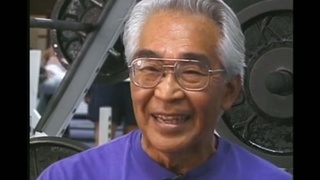Interviews
Playing basketball in the army
We had an orientation when we first arrived. This is the second training, we went into clerical, typing and things like that, the major was to make a big speech and I was tired, I was falling asleep and he saw me, I got in trouble for sleeping. He said, "You're going to do KP, dishwashing, all the time." Oh, boy. But then I played basketball for them and we won the championship, right, and so he says, "No more KP, you're okay." But what happened was I played good that day, I stole the ball, passed to my friend, went for a layup, and we won the game, right? So it made me look good. Anyway, that's my experience, basketball.
Now for the second time, I joined another basketball team there, and this was a bigger deal, And so we played, and then we were supposed to play the championship game on a weekend, but I needed a pass to go home. But the company commander says, "If you play, I'll let you have the next day off, easy." So I said, okay, so again, I played basketball and they gave me a pass. Nobody else got a pass, but I got a pass to go home. So it was great, basketball did a lot for me. [Laughs]
Date: September 20, 2019
Location: California, US
Interviewer: Tom Ikeda and Yoko Nishimura
Contributed by: Watase Media Arts Center, Japanese American National Museum and Denshō: The Japanese American Legacy Project.









